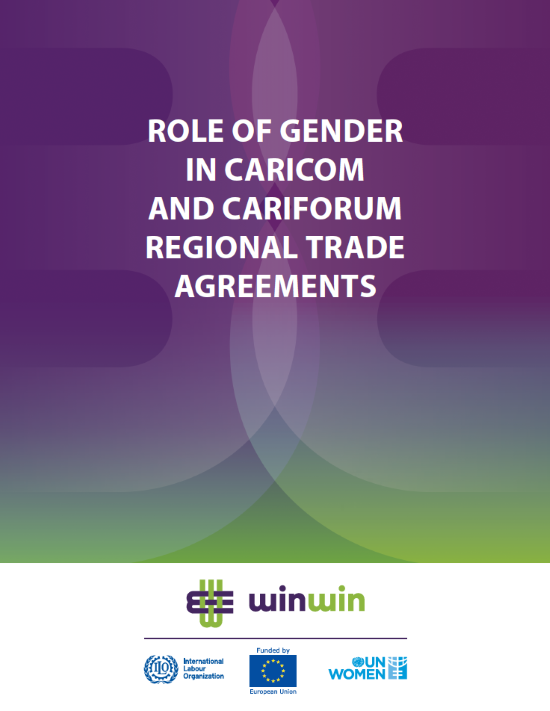
Role of Gender in CARICOM and CARIFORUM Regional Trade Agreements

The impact of trade and trade policies on women and men is shaped by the structure of dialogue, markets and institutions, and the gender inequalities that are entrenched in them. Trade policies and agreements influence the opportunities of women and men to access secure and decent employment, and to benefit from international trade. Trade policies developed with a gender perspective can help overcome gender inequalities by opening new opportunities for employment and prosperity for all.
The Caribbean has existing trade agreements among Caribbean Community (CARICOM) Member States and many others with neighbouring states, and with international partners, such as the Agreement on Trade, Economic and Technical Cooperation between CARICOM and the Government of the Republic of Venezuela. Still, however, there are numerous other opportunities for trade agreements that can be established by businesses, whether large corporations or micro-, small- and medium-enterprises (MSMEs).
As governments and civil society work to build an inclusive and resilient recovery in light of the COVID-19 pandemic, continued access to timely data on existing opportunities and vulnerabilities of women and other marginalised groups is required. This Role of Gender in CARICOM and CARIFORUM Regional Trade Agreements, produced under the Win-Win: Gender Equality Means Good Business Programme (in partnership with UN Women, ILO and EU), serves as a resource so that more informed decisions can be made when negotiating trade agreements and planning for the recovery from the impacts of COVID-19 to ensure that they are more gender-responsive.